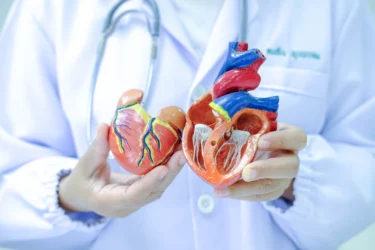Prabhakar Vati: Uses, Benefits, Side Effects, and more!
By Dr Ashok Pal +2 more

Get,

to manage your symptom
Get your,


4 Cr+ families
benefitted

OTP sent to 9988776655



You’ve successfully subscribed to receive
doctor-approved tips on
Whatsapp

Get ready to feel your best.

Hi There,
Download the PharmEasy App now!!


Register to Avail the Offer
Send OTPBy continuing, you agree with our Privacy Policy and Terms and Conditions

Hi There,
Sign up on PharmEasy now!!
Trusted by 4 crore+ families

OTP sent to 9988776655



You have unlocked 25% off on medicines




Code: NU25
By Dr Ashok Pal +2 more
Table of Contents
Prabhakar vati is an ancient Ayurvedic formulation which has been used for centuries, mainly to manage hrudroga1. Hrudroga, a disease of the heart, can be due to damage either in the structure or function of the heart. Prabhakar vati is made from different herbominerals, which might help strengthen the heart; therefore, it might be helpful for diseases of the heart1. This Ayurvedic preparation is now being standardised and commercialised too.
The ingredients used in the preparation of prabhakar vati are as follows:

1. Swarna mahkshika bhasma: It is a mineral containing copper, iron and sulphur. It is also known as chalcopyrite or copper pyrite. Swarna mahshika is the most abundant copper-containing mineral and has been used in Ayurveda for a long time to manage various diseases2.
2. Loha Bhasma: It is majorly an iron-containing, complex Ayurvedic preparation. It is a mineral and herb-containing preparation. It may help in promoting the growth of blood cells in the body3.
3. Shilajatu: It is a water-soluble, resin-type of material that flows from the rocks of the Himalayas during summers. It may have helpful properties; therefore, it is used in Ayurveda in combination with various other medicinal components. It is blackish-brown in colour4.
4. Abhrak bhasma: It is nothing but mica, i.e. biotite. Abhrak bhasma is an ash form of mica. It is basically a herbomineral preparation used in Ayurveda for many diseases. It is of different types based on colour, reaction to heat, etc5.
5. Arjuna swarasa: Arjuna is the common name of a tree which has been utilised for its medicinal properties for centuries. It might be mainly helpful for heart diseases but may also be helpful for many other disorders as well. Swarasa means juice, thus implying that the juice of Arjuna is utilised in prabhakar vati.
Prabhakar vati might have the properties of its constituent; therefore, it might have the following properties:
Over the years, I have found that Loha bhasma, which is present in Prabhakar vati, may be beneficial in managing Shwasa (respiratory disorder) associated with Hrudvyatha (chest pain), Plihavrudhhi (enlargement of the spleen), Yakrutavruddhi (enlargement of the liver), and Sarvanga shopha (generalized swelling). The mechanism of action for this is believed to be through the properties of Loha bhasma, which may help in reducing inflammation, improving respiratory function, and addressing the underlying causes of these associated conditions1.
Dr. Rajeev Singh, BAMS
Potential uses of prabhakar vati as follows:

Heart failure (also known as congestive cardiac failure) is a condition in which ventricles (chambers of the heart) are unable to pump blood to body parts. Prabhakar vati is a considerable choice for Ayurvedic physicians in such a condition. This is due to the fact that its constituents might help address the various problems due to which the heart is unable to perform its function by potentially strengthening it and reducing the load, and it might provide relief from common symptoms (like breathlessness, irregular pulse etc.). The components of prabhakar vati might be individually used to deal with various heart-related discomforts; therefore, together, they might act as a potent drug for certain heart conditions1. However, more research is required to prove such claims. Moreover, diseases of the heart must be properly diagnosed and treated by a doctor. So, kindly consult a doctor.

High blood pressure is a known risk factor for heart diseases and increases the chances of stroke6. It can have deadly consequences; therefore, constant care and monitoring are required. Among the various measures that need to be taken for this condition, prabhakar vati has also been recommended by the National Health Portal of India. However, more research is required to prove its potential effects. Conditions such as high blood pressure must be diagnosed and treated by a doctor, thereby, kindly consult a doctor.

Anaemia is a condition caused due to reduced blood or haemoglobin (a protein) in cells of the blood. One of the constituents of prabhakar vati, loha bhasma, may help with the irregular beating of the heart, which is caused by anaemia1. Loha bhasma may act as a haematinic agent and might stimulate the production of blood cells or haemoglobin. Thus, it may help counter the main causative factor of anaemia3. However, more research is required to ascertain such potential actions. Kindly consult a doctor. Do not self-medicate.

Prabhakar vati has abhraka bhasma, which might be good for nerves. It was found in studies that it has a potential use for the nerves and might be helpful for strengthening and rehabilitating the tissue. It might help in healing the nervous tissue that is impaired5. However, more research is required to prove such claims. Please consult a doctor and do not self-medicate.

Prabhakar vati contains iron as it contains lauha bhasma. Thus, prabhakar vati might help enhance the strength of an individual and may make them feel energetic. It may also be helpful in enhancing vitality. It may also have anti-ageing properties3. However, more research is required to prove such claims. Kindly consult a doctor.
Though there are studies that show the potential uses of prabhakar vati in various conditions, but these are insufficient and there is a need of further studies to establish the true extent of benefits of prabhakar vati on human health.
Based on my knowledge and experience, I have observed that Abhraka bhasma, a component of Prabhakar vati, may have potential benefits in managing exertional dyspnea. It is believed to work by improving lung function and enhancing respiratory capacity, which can help alleviate breathing difficulties during physical exertion1.
Dr. Siddharth Gupta, B.A.M.S, M.D (Ayu)
Prabhakar vati is available in the form of tablets. They are small, brown-coloured tablets and are being produced commercially. However, they are not over-the-counter drugs, and a physician should be consulted before taking them. Your Ayurvedic physician will prescribe you the form and dosage as per your health condition.
You must consult a qualified doctor before taking any herbal supplements. Do not discontinue or replace an ongoing treatment of modern medicine with an ayurvedic/herbal preparation without consulting a qualified doctor.
Also Read: Shilajit: Uses, Benefits & Side Effects
Side effects of prabhakar vati have not been reported yet in any major study. More research is required to ascertain its side effects. However, it may cause reaction/effects in certain individuals as each body reacts differently to different substances. If you notice any reaction, bring it to your Ayurvedic doctor’s attention immediately, as they will be better equipped to manage such situations.
Also Read: Brahmi: Uses, Benefits & Side Effects
A few general points are always to be kept in mind. Special care must be taken while giving this formulation to:
Do not self-medicate, it should not be taken without a doctor’s recommendation.
Also Read: Chandraprabha Vati (Chandraprabha Gulika): Uses, Benefits, Side Effects, Precautions & More!
There is insufficient evidence to state that there are no adverse reactions at all; more studies are required in this area. So, it is wise to take your doctor’s advice on the method of use and dosage of prabhakar vati. Kindly do not self-medicate. Please ensure that you disclose all the medications being used to your doctor so that they can have a clear picture about your complete health condition.
Also Read: Neem: Uses, Benefits & Side Effects
Prabhakar vati is an Ayurvedic formulation made up of different herbominerals. It is made using ingredients that are found in nature and contains various mineral constituents. It might be mainly helpful for diseases of the heart. However, more studies on it are required.
No. There are no reports of prabhakar vati being used to cure joint pains or joint problems.
Prabhakar vati might be helpful for certain diseases of the heart. It might help strengthen the valves of the heart and may help it to pump blood to the body efficiently.1 However, more studies are required to prove such claims. A doctor must be consulted for proper diagnosis and treatment of serious conditions such as diseases of the heart.
No. Prabhakar vati is not reported to be beneficial for the eyes. There isn’t enough evidence regarding the use of prabhakar vati for eyes.
The daily dosage of prabhakar vati and its method of use will be prescribed by your doctor. Kindly refer to your Ayurvedic doctor’s prescription as it is customised for your health.
The evidence is not enough to establish the safety of prabhakar vati during pregnancy. It is best to consult your Ayurvedic physician in such matters.
Prabhakar vati might help with high blood pressure. It is one of the formulations recommended by the National Health Portal of India for lowering elevated blood pressure. However, more research is required to prove its possible effects. Moreover, conditions such as high blood pressure must be diagnosed and treated by a doctor.
There have been no reports claiming the beneficial effects of prabhakar vati in patients with asthma. However, it might be helpful for breathlessness caused due to problems related to the heart.1 However, more research is required to ascertain such claims.
Disclaimer: The information provided here is for educational/awareness purposes only and is not intended to be a substitute for medical treatment by a healthcare professional and should not be relied upon to diagnose or treat any medical condition. The reader should consult a registered medical practitioner to determine the appropriateness of the information and before consuming any medication. PharmEasy does not provide any guarantee or warranty (express or implied) regarding the accuracy, adequacy, completeness, legality, reliability or usefulness of the information; and disclaims any liability arising thereof.
Links and product recommendations in the information provided here are advertisements of third-party products available on the website. PharmEasy does not make any representation on the accuracy or suitability of such products/services. Advertisements do not influence the editorial decisions or content. The information in this blog is subject to change without notice. The authors and administrators reserve the right to modify, add, or remove content without notification. It is your responsibility to review this disclaimer regularly for any changes.
Comments

Leave your comment...
You may also like
Comments